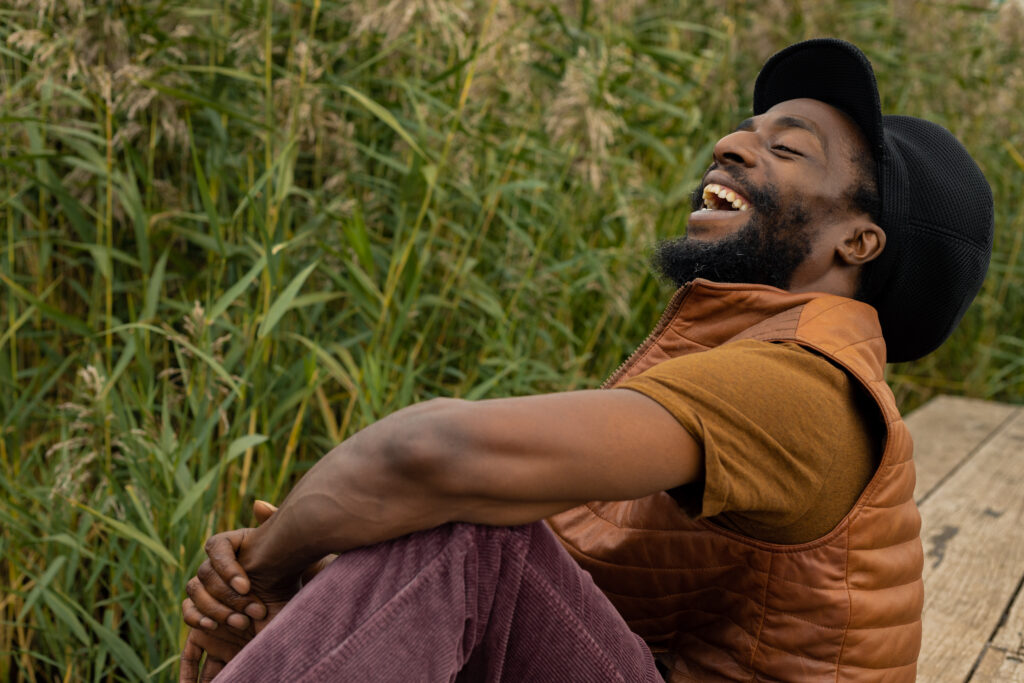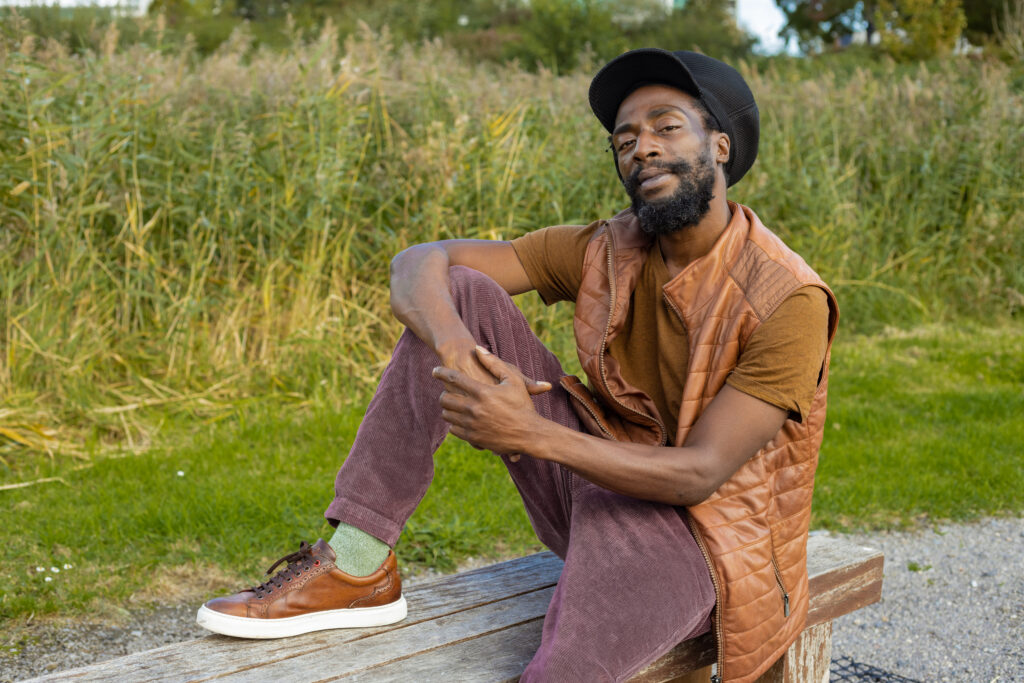Black History Month: “People of the Caribbean have a deep history with agriculture that is often overlooked.”
8/10/21
We’re celebrating Black History Month #ProudToBe with stories from Black people across Wales on the lessons Black history can teach us about the future.
Here, community educator, artist and beekeeper from Cardiff, Phillip Henry says his love for nature is inspired by past generations...
“I’ve always had a love for nature, and I gravitated towards it. Nature taught me what society wasn’t willing to."

“I was a performing artist for 20 years, but I replaced hundreds of people with thousands of bees, worms and trees. My grandparents were born in Jamaica. They owned their own land where they cultivated crops and raised animals. People of the Caribbean have a deep history with agriculture that is often overlooked. Re-connecting with my roots and culture, the Windrush generation before me, meant returning to nature.
I’m a volunteer caretaker of land in Penarth and Cwmgors. I’m also the founder of The Honeycomb Cooperative, (soon to be rebranded as TigerBay Honeycomb Cooperative) based in Cardiff. We are a Pan-African and Welsh non-profit organisation of apiarists who strive for a healthy, bee-friendly future. I am a trained apiarist – I use my beekeeping skills to utilise the products of the hive to promote self-care and wellness. Human activity has caused a substantial decline in the bee population and our aim is to counteract the decline for the sake of the bees and for humanity. We run a National Hive Service to provide education in the community on bee welfare and supporting the ecosystems that our bees are dependent on.
I even keep some of the beehives on my roof, four floors up, looking out over Cardiff Bay. My plan is to create mutually supportive spaces where communities can come together to explore and foster a sense of collective responsibility. That’s what The Honeycomb Cooperative is – the co-op stands for cultivating our own peace and prosperity. We encourage from the grassroots level collective responsibility and cooperative enterprises as illustrated in the lives of our sovereign hives.
We’re at a pivotal time in humanity’s existence. Everyone must play their part. There could be a great and greener relationship between all farmers, and we could develop more innovative solutions for the problems we all face today. Politicians could support this by seeking out individuals like me in agriculture, and giving practical support in areas such as sustainability, with nature apprenticeships for the under 25s. The opportunities are there, and they should be available to all.
We could learn a great deal about our sense of true community from the bees and how they strive to create a mutually beneficial environment.
The honeycomb is a perfect example of what we can strive for in our own communities – a safe space where we can grow harmoniously with our environment, and everyone can thrive.
I want to celebrate Black people’s history with and connection to agriculture and nature and provide more opportunities for Welsh BAME people to develop sustainable life skills and green enterprises.
Black History is very valuable to humanity. It should be called World History.”
As told to Emma Evans.

We believe Black history should be celebrated all year round. Wales’ Well-being of Future Generations Act puts a legal obligation on Welsh Government and public bodies to take action to improve the social, economic, environmental and cultural well-being of Wales and create a more equal Wales and a Wales that promotes and protects culture and heritage.
For information, resources and events, go to blackhistorymonth.org.uk and bhmwales.co.uk
You can read more Black History Month stories here all month and on our Twitter @futuregencymru and Instagram @futuregencymru.